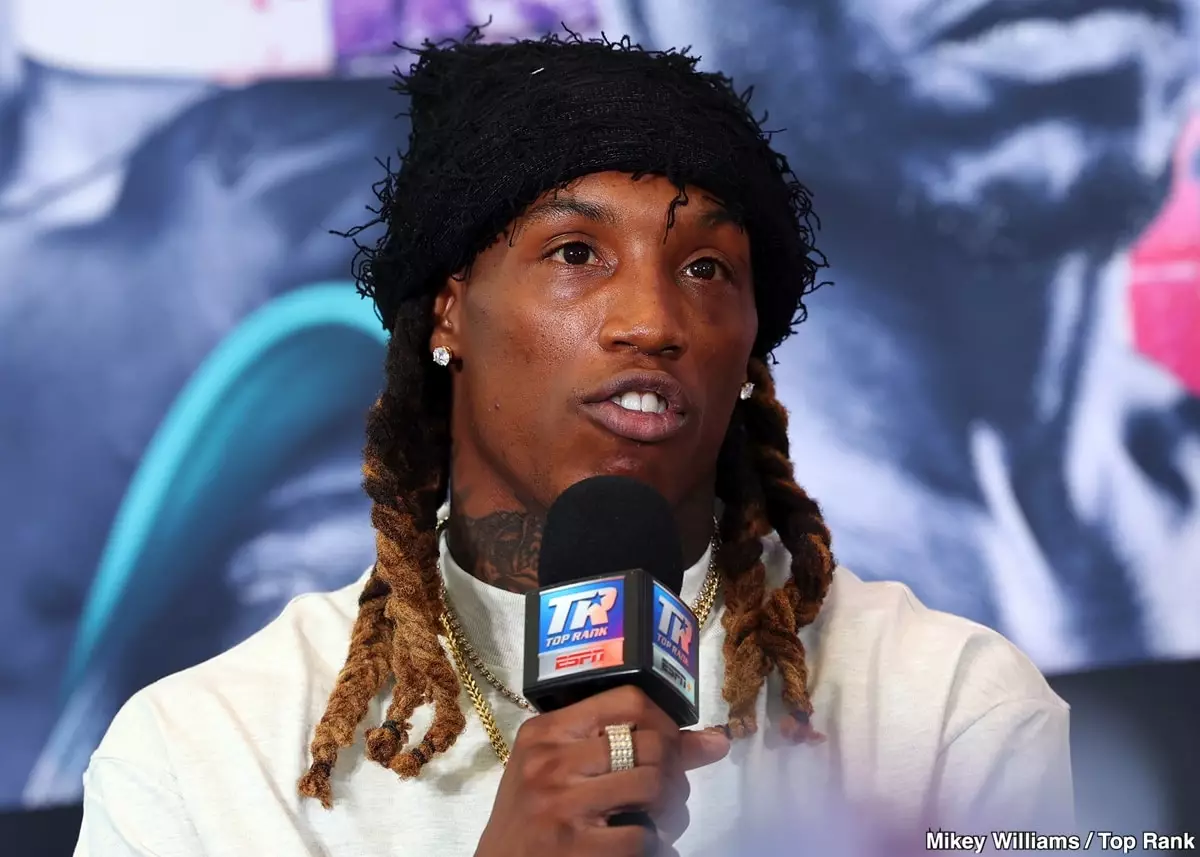By BoxingHit Staff-
O’Shaquie Foster finds himself at a pivotal moment in his boxing career, grappling with the reality of his defeat to Robson Conceição on July 6th. As he prepares for a rematch on Saturday at the Turning Stone Resort Casino in Verona, New York, the lingering sting of that loss remains palpable. Foster’s reflections on the bout reveal a fighter struggling to reconcile his perception of success with the stark reality of performance in the ring. With a record of 22 wins and 3 losses, including 12 knockouts, Foster’s confidence is palpable, yet it stands juxtaposed against his apparent inability to fully acknowledge the factors that led to his loss.
Despite his self-assuredness, his belief that he deserved the victory against the 2016 Olympic gold medalist seems misguided. In truth, Conceição controlled the action throughout the bout, consistently outworking Foster and asserting dominance. It raises a critical question: can a fighter truly be successful if he fails to recognize and learn from his mistakes? As Foster prepares to recapture his WBC super featherweight title, his mindset will undoubtedly play a crucial role in the outcome of this rematch.
Misreading the Fight
In analyzing the first match against Conceição, it is clear that Foster’s approach was flawed. He seems to have misinterpreted the fight’s dynamics, perceiving an illusion of control while failing to address the consistent pressure applied by his opponent. Referring to Conceição’s inability to “touch” him signals a convincing denial; in reality, Conceição was landing significant strikes, thereby emphasizing the effectiveness of his game plan. For Foster to maintain that he outlanded Conceição in every round reflects a severe disconnect with the fight’s true narrative—a disconnect that could prove detrimental if it continues into the upcoming bout.
Boxing, after all, is not simply about landing punches but also about engaging the audience and demonstrating ambition inside the ring. Fans expect to see a compelling match, not a cautious display that leaves them wanting more excitement. Foster’s safety-first attitude, reminiscent of a similar style showcased by Shakur Stevenson on the same card, alienated the audience who booed enthusiastically, seeking more entertaining action. Acknowledging that the crowd wanted excitement rather than a defensive showcase is one thing; acting on that realization is another entirely.
For Foster to achieve success in his rematch, he must evolve beyond his defensive tendencies and adopt a proactive approach. The world of boxing is notorious for harsh realities wherein complacency leads to a downward trajectory, and Foster is standing at a crossroads. If he fails to adapt, he risks not just losing the opportunity to reclaim his title but also diminishing his future prospects. Acknowledging the depth of competitive spirit and ambition displayed by Conceição can serve as the catalyst needed for Foster’s resurgence.
To frame the upcoming match in a productive way, Foster’s mindset should shift away from dwelling on the past and instead focus on actionable points for improvement. Embracing the notion that aggression and engagement can coexist with skill may prove instrumental in not just winning a rematch but also in rediscovering his fighting identity. While understanding that he possesses talent is essential, channeling that talent effectively into a cohesive plan is vital. This should be Foster’s primary objective as he steps back into the ring.
As Foster approaches the rematch with Conceição, a pivotal question looms: can he convert his introspections into tangible action? Acknowledging the fans’ desire for entertainment should motivate him towards a more engaging performance. Rather than retreating into a shell, he must commit to fighting with vigor, thus capturing the admiration of spectators and judges alike. The judges’ decisions are influenced not just by numbers on the scorecard but also by the observable ambition and engagement of the fighters.
Should Foster manage to recognize the effectiveness of an offensive approach, this match could become a turning point in his career. It holds the promise for a renewed commitment to the sport, not merely as a means of earning titles but as a platform for showcasing the thrill of competition. If he chooses to embrace this challenge, he stands at the brink of revitalization, ready to turn the tide of his career.
To conclude, O’Shaquie Foster faces not just the rematch against Conceição but also an internal battle of perception and reality. The lessons of the past, while painful, could illuminate a path toward a more dynamic and captivating version of himself. As he prepares for this crucial moment, the question remains: will he rise to the occasion, or will complacency continue to haunt his career? The upcoming fight will not only define his immediate future but also shape the narrative of resilience and growth in the face of adversity.


Leave a Reply